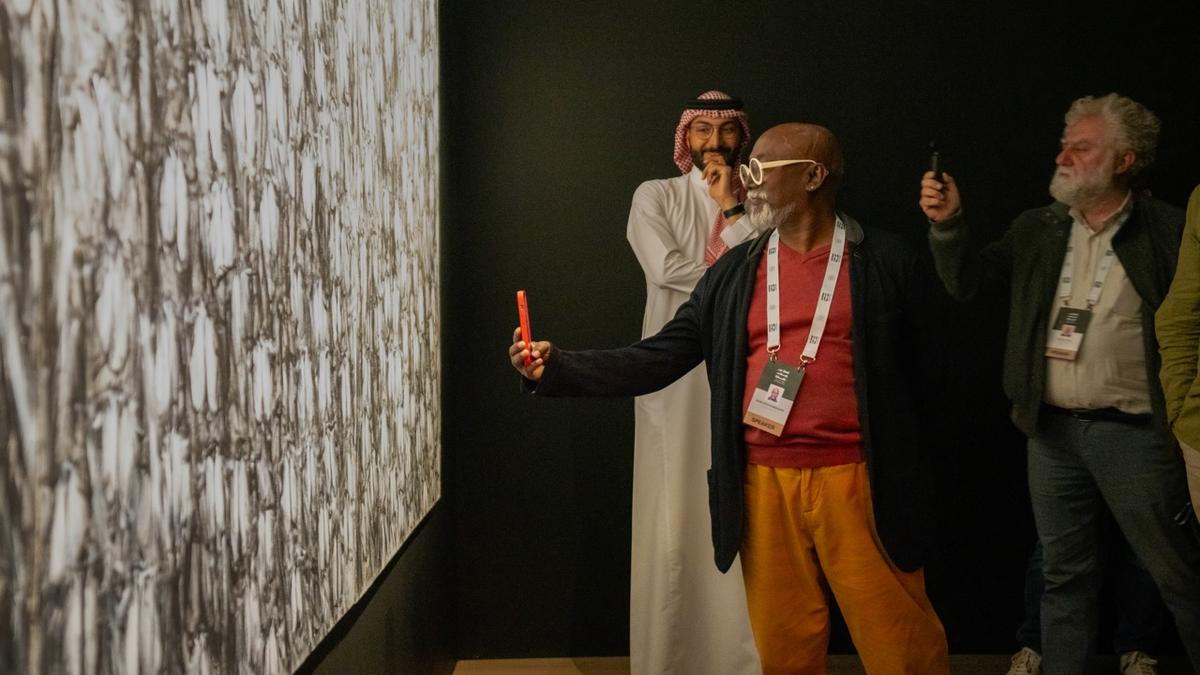
Saudi Arabia and a cultural renaissance Premium
The Hindu
The kingdom’s many initiatives, including the Future Culture Summit earlier this year, aim to help culture triumph over conservative religious ideology
Jazz and film festivals, fashion weeks, book fairs, art biennales and exhibitions, combined with ambitious plans to build multiple museums. Welcome to 21st century Saudi Arabia, where culture hopes to triumph over conservative religious ideology. Ever since Prince Mohammed bin Salman unveiled his Vision 2030 eight years ago, the kingdom is placing big bets on culture to attract tourism to boost the economy.
To further that vision, the country has already spent about $1.25 trillion on mega building projects, according to global real estate consultants Knight Frank, including such ambitious initiatives such as the Red Sea Project — where archaeological sites, islands and waters to rival the Maldives are meant to draw visitors. And it’s finding fans, including footballer Cristiano Ronaldo who moved there two years ago with his family and has been taking to social media recently to express his admiration for the land and its culture.
Other initiatives include the development of AlUla, a 2,000-year-old historic site on the ancient incense route, replete with caves and tombs, into a cultural destination. It has two major museums being developed: a contemporary art museum supported by the Centre Pompidou in Paris and the Museum of the Incense Road. They are among 15 cultural properties planned for the area.
This newfound cultural embrace is resulting in sundry conferences and events across Saudi. The inaugural Future Culture Summit, hosted earlier this year in AlUla, was one such event. Designed to explore the various ways in which culture can advance human thought, it seemed an apt topic given the political turmoil in the region.
The summit — which included speakers such as Laurent Le Bon, president of the Centre Pompidou, and Nora Razian of Dubai’s Jameel Arts Center — kicked off with the third edition of Desert X AlUla, an immersive open air art exhibition. The setting seemed an appropriate metaphor for the scale of what the kingdom is trying to achieve. Co-curated by Oxford-based Maya El Khalil and Brazilian documentary filmmaker Marcello Dantas, the exhibition, titled In the Presence of Absence, featured art works that explored trade, migration and time. “Deserts are full of life, they are full of history and full of different kinds of life forms… so how do we learn from that environment,” noted El Khalil.
“There are not so many countries in the world where among the first possibilities for development is culture,” said Le Bon, while Jerome Sans, who co-founded Palais de Tokyo, a centre for contemporary creation, stated that it was fascinating that Saudi understood the importance of culture. “Culture opens doors to possibilities and that is what is happening here now. My colleagues from other institutions, artists, curators, thinkers are here because Saudi is one of the most interesting laboratories of the future — they are rethinking how they should adapt.”
One of the most fascinating performances at the summit was by professor Eduardo Miranda of the University of Plymouth in the U.K., on how quantum computers can help make music by mapping brain waves, which could eventually help people with special needs. Also, on the side lines was an art show displaying Saudi art over the past 25 years. Held at Maraya, the world’s largest mirrored building, the show reflected the diversity and complexity of a nation largely viewed as a monolith from the outside.

‘Madha Gaja Raja’ movie review: A familiar Vishal going hand-in-glove with a prime Santhanam, abs-flashing fights with a stock villain, and scantily clad women treated as mere sex symbols — Sundar C’s 12-year-old masala entertainer works as a reminder of what Tamil cinema has been missing out on, and what it has largely tried to correct itself from

















